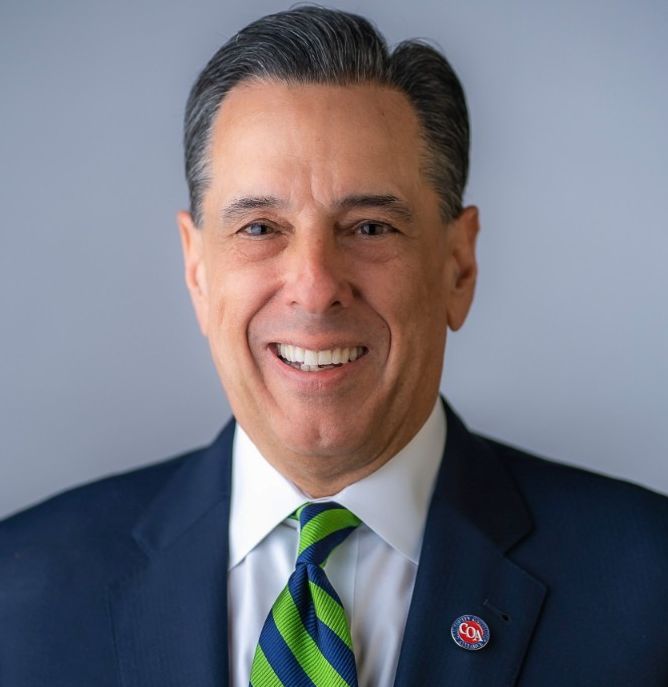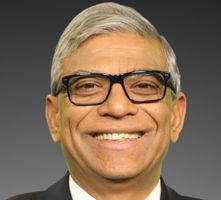- Center on Health Equity & Access
- Clinical
- Health Care Cost
- Health Care Delivery
- Insurance
- Policy
- Technology
- Value-Based Care
Unknown Number of Practices Drop From EOM as Deadline Nears; Billing Flaw Questioned
Ahead of tonight's deadline for practices to decide whether to join the Enhancing Oncology Model, CMS published a list of participants that is already outdated. A possible flaw in the model's breast cancer methodology has some practices weighing their options.
A year after its predecessor expired, the Enhancing Oncology Model (EOM) is set to begin tomorrow—but what’s still unknown is how many practices and oncologists will take part.
And now, on the eve of the EOM launch, a group representing community oncology providers says the Center for Medicare and Medicaid Innovation (CMMI) has ignored the group’s discovery of a flaw in the financial formula, which would wreak havoc with the way Medicare calculates costs for treating certain cases of breast cancer.
On Tuesday, CMMI published an announcement on the EOM website, which claimed 67 practices had signed on for the latest alternative payment model in Medicare. From the start, that number was inaccurate, as one practice was listed 3 times.
Then, calls with those familiar with practices listed as participants revealed that some had already dropped out, while others were still weighing their options. Practices that applied for the program and received a practice agreement can still drop out today.
One large practice listed on the EOM website confirmed that it dropped out Wednesday.
Barry Russo, CEO for the Center for Cancer and Blood Disorders, a 37-physician practice based in Fort Worth, Texas, wrote in an email to The American Journal of Managed Care®(AJMC®) midday Thursday, “We officially withdrew from the EOM program yesterday. We will not be participating.”
By Thursday afternoon, the Community Oncology Alliance (COA) had issued a statement criticizing CMMI for moving forward with the EOM amid tepid interest from practices and the revelation of the billing flaw.
Okon

“Not only has CMMI ignored all of COA’s efforts to collaborate and suggestions to strengthen the EOM to attract participants, but it has also failed to respond to a serious flaw our analysts recently identified in the EOM methodology dealing with breast cancer treatment. This has left practices that want to participate in the EOM struggling with a decision that could be detrimental to patient care and possibly damaging to practice survival,” said COA Executive Director Ted Okon, MBA.
“The EOM should have been a successful oncology model attracting all participants from the prior CMMI Oncology Care Model (OCM) but instead unfortunately looks to be a failure from the start,” he said.
CMMI has never stated how many practices or oncologists are needed to make the EOM viable, but it has stated in an email to AJMC that such a minimum exists.
By Thursday evening, it was not clear that that the EOM would recruit even half the 122 practices that were still in the OCM when its 6-year run ended on June 30, 2022. Although the OCM saw attrition during its years of operation, it launched with about 200 practices in 2016.
Okon called the early enrollment data for EOM “particularly damning.”
COA Warned CMMI That EOM Was in Trouble
During an April session of the Quality Cancer Care Alliance (QCCA) annual meeting, Okon shared that he had warned high-level officials at CMS, of which CMMI is a part, that member practices were not enthusiastic about the new payment model, which retained many features of the OCM, but had some key financial differences.
Both OCM veterans and practices without payment model experience said the EOM requires them to take on more work with less revenue to support the required services, and its risk models offer very little room for error. In addition, EOM had no test period to learn how it works, as was done with the OCM.
One major point of friction is that payments for Monthly Enhanced Oncology Services (MEOS), which covered required items such as patient navigation and advance care planning, have been cut from $160 per patient per month (PMPM) to $70 PMPM, although practices can get $100 PMPM for those patients also eligible for Medicaid.
But the requirements to take on 2-sided risk immediately, along with other features of the risk model, were cited as the top problem when COA surveyed members last month. In all, 71% of surveyed practices said they would not join the EOM.
Flaw in Breast Cancer Episode Trigger
In his statement, Okon said that in early June, an internal COA analysis identified a problem with the EOM’s breast cancer methodology “that could have substantial financial implications to practice performance.”
Like the OCM, the EOM will operate along 6-month episodes, with the start of therapy acting as a “trigger” for an episode to begin. However, unlike the OCM, the EOM has greatly streamlined the types of cancer included in the model. Thus, certain therapies should not act as a trigger.
In fact, an EOM fact sheet updated on Tuesday states: “EOM focuses on beneficiaries receiving systemic chemotherapy (that is, not beneficiaries receiving hormonal therapy only) for 7 cancer types: breast cancer, chronic leukemia, small intestine/colorectal cancer, lung cancer, lymphoma, multiple myeloma, and prostate cancer.”
However, the COA analysis found that a hormonal therapy was left on the trigger list anyway.
“By including fulvestrant (a hormonal therapy) as an initiating therapy in episodes, practices could face an 8.3% greater spend than predicted,” the statement said. “This could have serious downstream implications on overall practice performance in the EOM, reconciliation, and the financial risk they face.”
According to COA officials, its leaders alerted CMMI to this problem more than 2 weeks ago, but as of Thursday CMMI had not responded—either with a correction or by refuting COA’s analysis.
Leaders who have been advocates for Medicare oncology payment models worry this lack of responsiveness is a bad sign, given the widespread belief that such reimbursement mechanisms will become mandatory someday.
EOM List Not Updated as Deadline Nears
Groups listed as EOM participants on CMMI’s list are a mix of small and large community practices, including those that are members of broader care networks that share resources for clinical pathways, technology, marketing, clinical trial management, and other services. Some listed participants were hospital or health systems.
CMMI did not update the list during the week as practices dropped out. The Center for Cancer and Blood Disorders was still included Thursday at close of business, and the overall number of participants had not been updated. On Thursday, AJMC asked CMMI to provide the names of any other practices listed as EOM participants that have since dropped from the program; AJMC also asked when a final, confirmed list of participants will be posted.
This morning, CMS responded, but the agency did not provide an updated list of participants:
“EOM is a voluntary payment model in which termination of participation can occur at any time point. Updates to the EOM participant list occurs on a frequent basis. The next planned update of list of EOM participants will be early next week after the launch of EOM on July 1, 2023, when episodes initiate. The deadline to withdraw prior to episode initiation is June 30, 2023, 11:59 pm ET.”
Because of the known issues with the CMMI list and because some practices are still making decisions, AJMC will not publish names of participants without direct confirmation from the practice that it will be an EOM participant. However, the list does show that some notable, successful leaders in the OCM elected to not move forward.
Patel

Missing from the list is Carolina Blood and Cancer Care Associates in Rock Hill, South Carolina, whose CEO, Kashyap Patel, MD, is a former COA president who was an OCM cheerleader and operated the model successfully, despite his practice’s small size. Patel is also the associate editor of AJMC’s Evidence-Based Oncology™ (EBO).
Patel fully supported CMMI’s effort to include a health equity component in the EOM, something that was missing from the earlier payment model. However, in April, Patel wrote a commentary for EBO stating that the EOM’s financial incentives were not sufficient to achieve its health equity goals.
Challenges for a Small Practice
In an interview, Patel said there were several reasons why his practice did not proceed with the EOM, starting with the lack of resources to fully address health equity as called for in the model.
Second, Patel said the significant decline in MEOS revenue, resulting from both the smaller PMPM payment and much smaller pool of eligible patients, would create an ethical challenge for a small practice like his. Under the OCM, the MEOS revenue was sufficient to hire enough staff to provide services for all patients, not just those in model. Under EOM, Patel said, that would not be possible.
“I personally feel it is not appropriate to distinguish between 2 cancer patients,” he said.
Third, Patel said CMS has not responded to his inquiries about addressing long COVID-19 as a comorbidity that affects cancer onset and progression. And, finally, he said that the model does not incorporate use of the most state-of-the-art biomarkers needed for guideline concordant precision medicine.
Looking ahead, Patel sees opportunities to work with regional payers near his practice to retain the best elements of value-based care. He said he willing to work with both commercial payers and with CMS “to build a pilot that can include a disparities initiative.”
However, he said, small practices in particular need resources to do this correctly. “Identifying problems without having resources to address them does not make sense from my perspective,” Patel said.
Exploring Medicare Advantage Prior Authorization Variations
March 26th 2024On this episode of Managed Care Cast, we're talking with the authors of a study published in the March 2024 issue of The American Journal of Managed Care® about their findings on variations in prior authorization use across Medicare Advantage plans.
Listen
